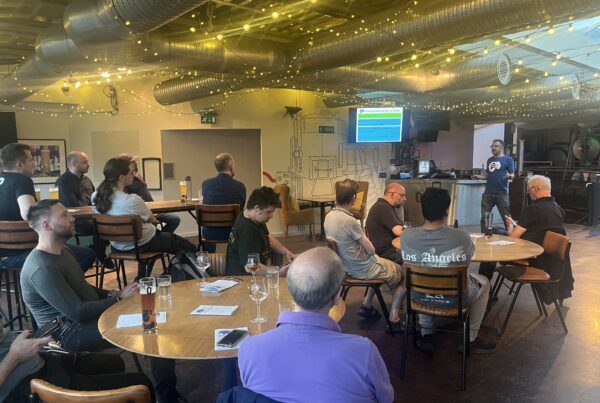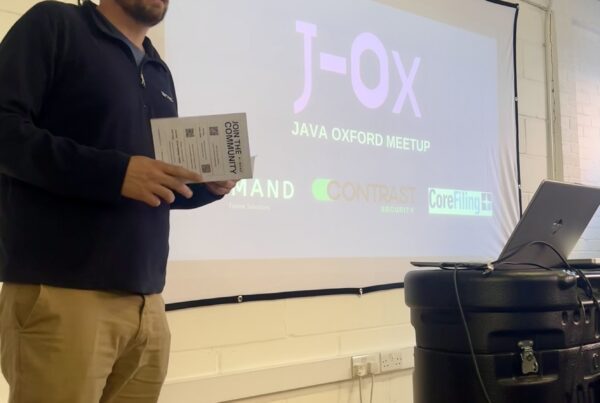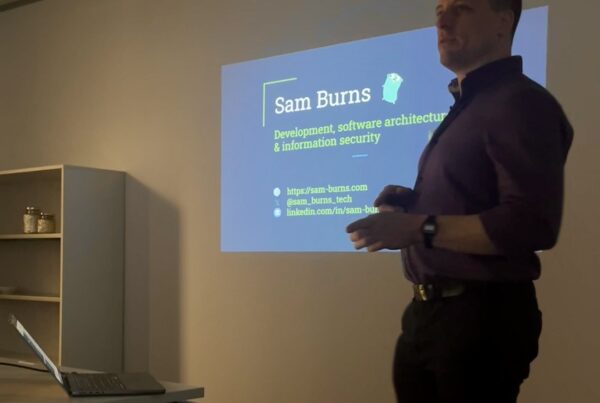The tech industry is evolving faster than ever, and with it, the expectations placed on aspiring and experienced software engineers. Employers in high-tech, med-tech, and fin-tech sectors are searching for individuals who go beyond technical proficiency. They’re on the lookout for problem solvers, critical thinkers, and effective communicators who can adapt to challenges and drive innovation.
Whether you’re eyeing a role in software engineering in Oxford or aiming for opportunities in a global market, preparation is key. This guide delves deep into the strategies, mindsets, and practices you need to ace your tech interviews in 2025.
1. Focus on Problem-Solving Over Syntax
It’s tempting to dive straight into coding when faced with a technical question, but that’s not what interviewers care about most. They’re interested in how you think, your problem-solving approach, and your ability to explain your reasoning.
When faced with a problem, take a step back. Outline your thought process, identify potential challenges, and map out a structured solution. By articulating your plan clearly, you not only help the interviewer understand your approach but also demonstrate that you think critically and methodically.
Example Thought Process:
“To solve this, I’d first break the problem into smaller components. I’d then evaluate potential bottlenecks and ensure the solution is scalable for increasing workloads.”
💡 Pro Tip: Interviewers value clarity over complexity. Focus on explaining your approach, even if your solution isn’t perfect—it’s the reasoning that counts.
2. Master the Fundamentals
Every software engineer should have a strong grasp of the basics: algorithms, data structures, and system design. These are the cornerstones of most technical interviews, and being well-versed in them will give you an undeniable advantage.
Spend time revising concepts such as hash tables, binary trees, sorting algorithms, and dynamic programming. Don’t just memorise; practice applying these concepts to real-world scenarios. Tools like LeetCode, HackerRank, and Codewars provide excellent practice opportunities tailored to your skill level.
Key Topics to Revise:
- Sorting algorithms (merge sort, quick sort)
- Common data structures (stacks, queues, linked lists)
- System design principles (scalability, latency optimisation)
Practice Question Example:
“How would you determine if a string contains all unique characters?”
💡 Pro Tip: Always be ready to discuss the time complexity and space complexity of your solutions. For example, can you explain the difference between O(n) and O(log n)?
3. Know Your Work Inside Out
Recruiters and hiring managers don’t just want to know what you’ve done—they want to understand how you did it and why it mattered. Be prepared to discuss your past projects in detail, focusing on the challenges you encountered, the decisions you made, and the results you achieved.
Practice Questions to Prepare:
- “What was the most technically challenging aspect of your last project?”
- “How did your solution improve efficiency, user experience, or scalability?”
- “Can you explain a time when a project didn’t go as planned? What did you learn from it?”
💡 Pro Tip: Always quantify your impact. For instance, if you improved a system’s efficiency, be specific: “Optimised database queries, reducing load time by 35%.”
4. Practice Explaining Systems
System design interviews are a common challenge, especially for mid-level and senior positions. These questions test your ability to design scalable, reliable systems while considering trade-offs. Employers want to see how you approach architecture, scalability, and performance optimisation.
Example System Design Question:
“How would you design a social media platform that supports millions of users posting and sharing content daily?”
When tackling system design questions:
- Start by asking clarifying questions to understand the requirements.
- Sketch out a high-level architecture, including key components like databases, APIs, and caching systems.
- Discuss trade-offs. For example, would you prioritise speed over storage efficiency?
💡 Pro Tip: Practice creating designs for applications you use daily, such as e-commerce platforms or messaging apps. It’ll help you think critically about the systems behind everyday tools.
5. Be Prepared to Ask Questions
An interview is a two-way street. Asking thoughtful questions demonstrates your interest in the role and helps you evaluate whether the company is a good fit for you.
Examples of Thoughtful Questions:
- “What’s the team’s approach to balancing technical debt with new feature development?”
- “Can you share an example of a recent technical challenge the team solved?”
- “How does the team foster innovation and learning among its members?”
💡 Pro Tip: Tailor your questions to the company. Research their recent projects or technical achievements, and frame your queries around them.
6. Communicate Clearly
Technical skills alone won’t land you the job—your ability to communicate effectively is just as important. Interviewers often evaluate how well you articulate your thoughts, especially when explaining complex concepts or collaborating with non-technical stakeholders.
How to Improve Communication:
- Think aloud: Explain your reasoning as you solve problems to make your thought process transparent.
- Use analogies: When explaining technical concepts, compare them to everyday scenarios.
- Practice storytelling: Share your project experiences as engaging narratives, highlighting the challenges, solutions, and impact.
💡 Pro Tip: Clarity trumps jargon. Simplify your explanations without oversimplifying the content.
7. Prepare for Behavioural Questions
While technical skills are vital, your soft skills—teamwork, adaptability, and problem-solving—are equally important. Employers often assess these through behavioural questions.
Common Behavioural Questions:
- “Describe a time when you disagreed with a teammate. How did you resolve the conflict?”
- “Can you share an example of when you worked under pressure to meet a tight deadline?”
- “How do you handle constructive feedback on your work?”
When answering behavioural questions, use the STAR method:
- Situation: Briefly describe the context.
- Task: Explain your role in the situation.
- Action: Detail the steps you took to address the challenge.
- Result: Share the outcome and what you learned.
8. Practice, Practice, Practice!
Preparation is your best weapon. Dedicate time to practicing coding challenges, system design problems, and behavioural questions. Mock interviews with peers or mentors can provide valuable feedback and help you build confidence.
Advanced Practice Questions:
- “How would you design a system for an online food delivery platform?”
- “Describe a time you optimised an algorithm or a system. What was the impact?”
- “How would you approach designing a scalable video streaming service?”
💡 Pro Tip: Set aside dedicated time daily for interview prep. Consistency is key.
Acing a tech interview in 2025 requires more than technical prowess—it demands a combination of preparation, adaptability, and clear communication. Showcase your ability to think critically, solve problems, and collaborate effectively, and you’ll stand out to employers.
At Humand Talent, we specialise in connecting top-tier software engineers in Oxford and beyond with leading firms in high-tech, med-tech, and fin-tech. If you’re ready to advance your career or need expert recruitment guidance, get in touch with us here.




